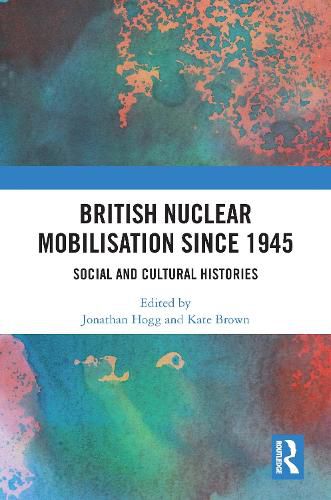Readings Newsletter
Become a Readings Member to make your shopping experience even easier.
Sign in or sign up for free!
You’re not far away from qualifying for FREE standard shipping within Australia
You’ve qualified for FREE standard shipping within Australia
The cart is loading…






This book explores aspects of the social and cultural history of nuclear Britain in the Cold War era (1945-1991) and contributes to a more multivalent exploration of the consequences of nuclear choices which are too often left unacknowledged by historians of post-war Britain.
In the years after 1945, the British government mobilised money, scientific knowledge, people and military-industrial capacity to create both an independent nuclear deterrent and the generation of electricity through nuclear reactors. This expensive and vast 'technopolitical' project, mostly top-secret and run by small sub-committees within government, was central to broader Cold War strategy and policy. Recent attempts to map the resulting social and cultural history of these military-industrial policy decisions suggest that nuclear mobilisation had far-reaching consequences for British life.
The chapters in this book were originally published as a special issue of Contemporary British History.
$9.00 standard shipping within Australia
FREE standard shipping within Australia for orders over $100.00
Express & International shipping calculated at checkout
This book explores aspects of the social and cultural history of nuclear Britain in the Cold War era (1945-1991) and contributes to a more multivalent exploration of the consequences of nuclear choices which are too often left unacknowledged by historians of post-war Britain.
In the years after 1945, the British government mobilised money, scientific knowledge, people and military-industrial capacity to create both an independent nuclear deterrent and the generation of electricity through nuclear reactors. This expensive and vast 'technopolitical' project, mostly top-secret and run by small sub-committees within government, was central to broader Cold War strategy and policy. Recent attempts to map the resulting social and cultural history of these military-industrial policy decisions suggest that nuclear mobilisation had far-reaching consequences for British life.
The chapters in this book were originally published as a special issue of Contemporary British History.